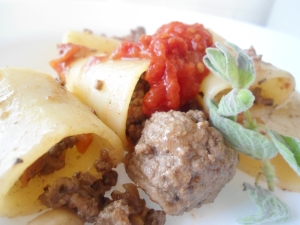
This is a fantastic initiative, Youssef Fares in one of the producers mentioned in the Mouneh book. I have done this trip with him and it remains a very memorable day.
Celebrate The Olive Picking Season In Baino’s countryside, you will engage in a walk among the olive trees where you will be initiated to sustainable olive picking practices and organic farming. After visiting the olive extraction unit, familiarizing with the state-of-the-art extraction techniques, you will practice extra virgin olive oil tasting to discover its different characteristics and explore the different culinary applications of olive oil along with its many health benefits. Later in the day, you will savor a delicious home-made lunch prepared from various local specialties, and finally have a visit Baino’s natural reserve and its beautiful lake, before returning to Beirut.
Reservation is a must as places are limited! For tickets and further info call House of Zejd (contact information below) or go to the following link:https://www.ihjoz.com/events/1374-olive-oil-trail-season-s-final-harvest
Facebook event link: https://www.facebook.com/events/1498807823754982/
Summary:
o Gathering & drop off location: Beirut (details coming soon)
o Time: 8am
o Return time from Baino: 4:30pm
o Fees:
-transportation included: USD 40.00
-transportation excluded: USD 30.00
o Reservation:
- ihjoz
- call House of Zejd (009611338003)
o Payment: Both reservations must be paid prior to friday the 4th of December 2015 at House of Zejd.
Address: Mar Mitr street - Ashrafieh (facing the Brazilian Cultural Centre) - 01.338003 | www.zejd.net
Activities:
A bus will pick you up from Beirut and drive you to our village through the Northern territory of Lebanon. In Baino’s countryside, you will engage in a walk among the olive trees where you will be initiated to sustainable olive picking practices and organic farming. After visiting the olive extraction unit, familiarizing with the state-of-the-art extraction techniques, you will practice extra virgin olive oil tasting to discover its different characteristics and explore the different culinary applications of olive oil along with its many health benefits.
In our specialized store, you will have access to the best selection of our product. And finally, you will savor a delicious home-made lunch prepared from various local specialties, and finally, have a visit to Baino’s natural reserve and to its beautiful lake, before returning by bus to Beirut.
Olive Oil Tour in Baino-Akkar
Celebrate the olive picking season. From October till late December, discover Baino in Akkar, home to Zejd® olive derivative products.
Lebanon is renowned for its rich oleic history and culture dating back to centuries. The Olea Europaea tree was first cultivated in the Levant region thousands of years ago and the production of Lebanese olive oil can be traced back to the Phoenician era.
Zejd® - the ancient Phoenician term for oil - highlights the rich historical background of Lebanese olive oil.
For one day only or over a weekend, hand-pick your olives, learn about olive oil extraction and olive oil tasting, taste Baino specialties and finally stock up on local produce of olives, olive oil and mouneh for the year to come.
A family tradition …
Back in the 19th century, the Fares family began cultivating olives and pressing oil in Baino, a mountain village in the Akkar region of Northern Lebanon.
Today, the family tradition is perpetuated with Olive Trade® through the production of high-quality Extra Virgin and organic olive oil. The select range of products also includes a unique line of infused oils, pickled and stuffed olives, tapenades, traditional olive oil soaps as well as caramelized chocolives.
Olive Trade® adopts exceptional standards throughout olive cultivation to the latest technology in olive oil extraction and storage conforming to the rigorous ISO 22000: 2005 standards.
Our eco label mill certification is yet another testament to our commitment to ecological standards.
Striving for social responsibility, we make a point in ensuring best practices by engaging local farmers and producers in the olive oil production, creating vocational training projects for the women.













